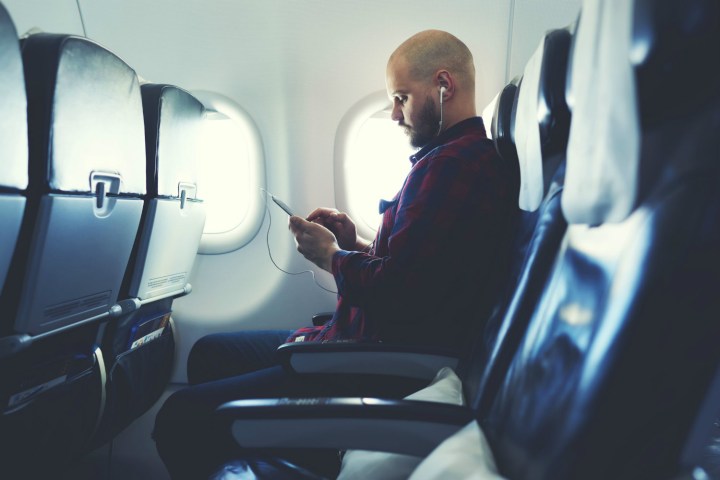
The move, put in place by the Transportation Security Administration (TSA) on Tuesday, comes in response to new threat intelligence received by the U.S. government. No U.S.-based airlines are subject to the new rules, as none of them fly to the destinations in question. However, some of the affected airlines are alliance or codeshare partners of U.S. carriers.
Updated on March 23, 2017: Added information about Emirates’ laptop and tablet handling service for U.S. flights.
Ten airports will now have to ensure that devices such as laptops, tablets, e-readers, portable DVD players, and cameras are packed inside checked luggage and kept out of the cabin, until further notice. Medical devices will be allowed.
These are:
- Dubai International in the United Arab Emirates (UAE)
- Abu Dhabi International in the UAE
- Istanbul Ataturk in Turkey
- Cairo International in Egypt
- King Abdulaziz International in Saudi Arabia
- King Khalid International in Saudi Arabia
- Queen Alia International in Jordan
- Kuwait International
- Doha International in Qatar
- Mohammed V Airport in Morocco
The affected airlines include Emirates, Etihad, Turkish Airlines, EgyptAir, Saudia (Saudi Arabian Airlines), Royal Jordanian, Kuwait Airways, Qatar Airways, and Royal Air Maroc. Airlines were notified on March 22, and will implement the ban beginning on March 24, according to information released by Royal Jordanian. The ban does not affect these airlines’ flights that originate from a different airport/city, such as Emirates’ U.S.-bound flights from Milan, Italy or Athens, Greece.
In response to the ban, Emirates announced a “laptop and tablet handling service” that lets passengers use the banned devices up until they board the flight. They can then pass the devices to security personnel, who will then pack and store them in a plane’s holding area. The devices will be returned to the passengers upon arrival. Emirates will not charge for the service.
The U.K. has also implemented a similar rule for in-bound flights from particular countries and airlines.
Passengers transiting through the U.S. are also required to obey the ban, even if the U.S. isn’t their final destination.
If you’re wondering how sending electronics to the hold instead of the cabin improves the safety of an aircraft in the face of a security threat, ABC News points out that the machines scanning checked luggage are in most cases more powerful than those used for hand luggage, so they have a better chance of pinpointing suspicious contents.
Regardless, the ban will be a headache for many passengers, airports, and airlines. If you’re heading to the U.S. from the airports in question, it’s best that you load up your smartphone with content and maybe get back to basics by taking a few printed books with you – these are long-haul flights, after all. If you can live without your electronics, leave them at home.
Of course, you’ll want to take extra care packing your tech gear in your suitcase — use bubble wrap or soft foam before placing it inside a tough case, and then bury it among your clothes. Read the airline’s rules on checked luggage to find out if you would be compensated in case of loss or damage.
It goes without saying that you should use luggage locks, a measure that provides at least some protection against those on the hunt for valuable freebies. Be sure to use TSA-approved locks. And don’t forget to password protect your laptop, just in case it does disappear en route.
The ban is sure to be a pain for carriers as well as passengers, but Emirates and Turkish Airlines have been quick to use it to trumpet their respective in-flight services:
Let us entertain you. pic.twitter.com/FKqayqUdQ7
— Emirates Airline (@emirates) March 21, 2017
2 Billion minutes of entertainment on air #TurkishAirlines pic.twitter.com/2RnfZDqUWT
— Turkish Airlines (@TurkishAirlines) March 21, 2017
Editors' Recommendations
- How fast is 5G? What you need to know about 5G speeds
- What is Discord? What you need to know about the messaging app
- What is NVMe? Everything you need to know about high-speed storage
- What is GDDR7? Everything you need to know about next-gen VRAM
- What is Fanfix? Everything you need to know about the Patreon rival


